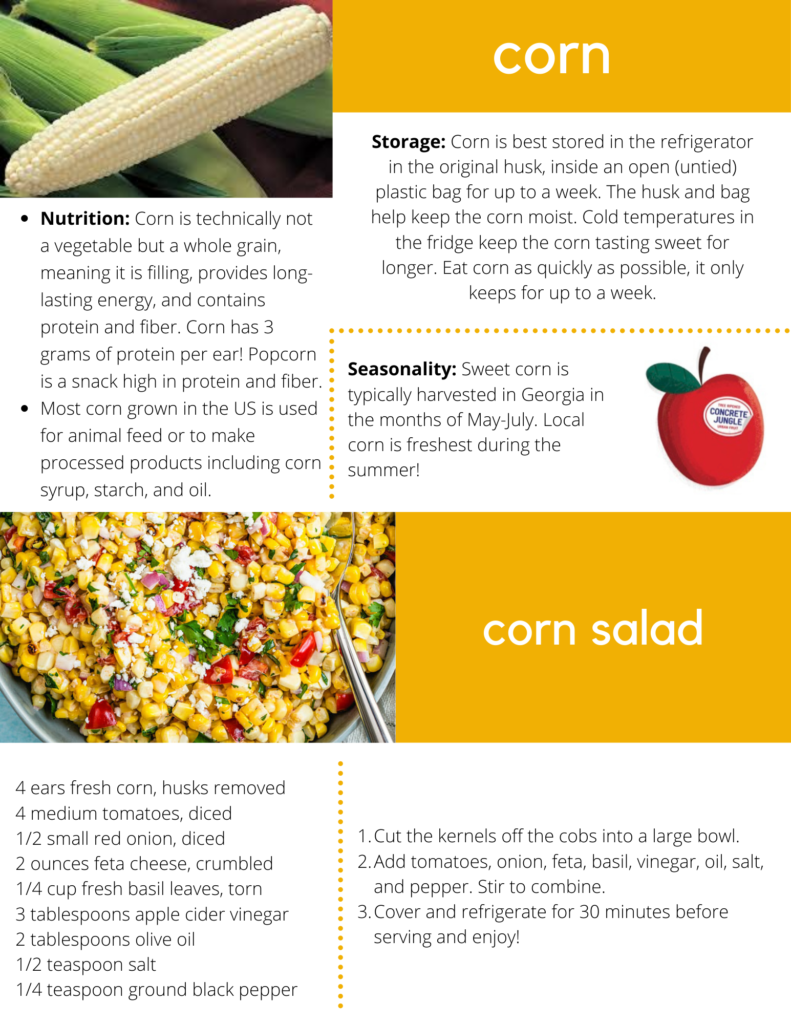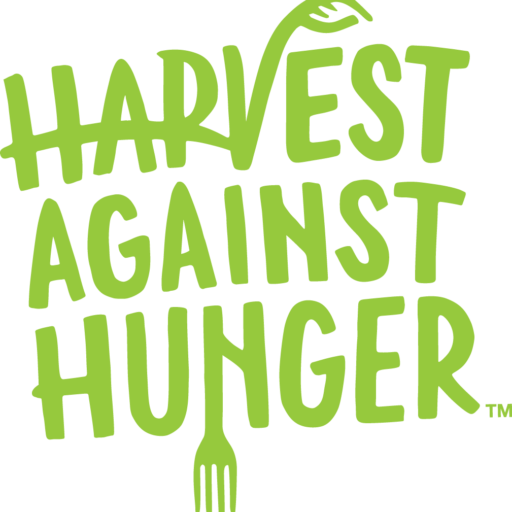How Can We Help?
PEEL x PBC: Preventing Food Waste while Creating Access at Concrete Jungle
Written by Meggie Stewart, Communications and Program Expansion VISTA.
Beginning in 2022, the Produce Education and Enjoyment Loop (PEEL) and Produce Buyers Club (PBC) programs at Concrete Jungle (CJ) are joining forces. PEEL is Concrete Jungle’s education program which lowers the barriers to trying new, local produce by providing direct education at food pantries. PBC purchases imperfect, discounted produce from local farms and distributes it to nonprofit partners in the Atlanta area. The goals of PBC include preventing food waste and increasing access to fresh produce for food pantry clients. Together, PBC and PEEL are collaborating to provide new educational resources about the produce PBC offers, in response to requests from partner organizations and food pantry clients.
In August 2022, a survey was created for the food pantry managers who participate in PBC (aka “buyers”), to gauge what types of educational materials would be most useful for their clients. The results of the survey showed that education about Nutrition Facts, storage and shelf life information, and healthy recipes were the highest priorities. Other educational information requested by survey respondents included seasonality information and interesting facts about produce varieties.

A prototype of an educational flyer was created using the feedback in the surveys. The flyer contains photos and the following information about corn, compiled from reputable sources:
- Nutrition: Corn is technically not a vegetable but a whole grain, meaning it is filling, provides long-lasting energy, and contains protein and fiber. Corn has 3 grams of protein per ear! Popcorn is a snack high in protein and fiber.
- Storage: Corn is best stored in the refrigerator in the original husk, inside an open (untied) plastic bag for up to a week. The husk and bag help keep the corn moist. Cold temperatures in the fridge keep the corn tasting sweet for longer. Eat corn as quickly as possible, it only keeps for up to a week.
- A quick, no-cook recipe for Corn Salad including other seasonal vegetables like basil, tomatoes, and bell peppers.
- Seasonality: Sweet corn is typically harvested in Georgia in the months of May-July. Local corn is freshest during the summer!
- Interesting Fact: Most corn grown in the US is used for animal feed or to make processed products including corn syrup, starch, and oil.
As the educational materials are developed, all the recipes and facts are compiled in an online folder, which will be shared with buyers when they place an order. Buyers can access the growing collection of educational materials for their own uses including distributing to clients, promoting healthy options, and cooking classes. PBC is committed to helping food pantries share this information with their clients, so the survey contained a section about how buyers would like to receive the materials. The most popular responses were: online folder, printed double-sided cards included with each produce order, posters, and QR codes. Using the survey, buyers can customize how they would like to receive the materials. PBC is exploring options for Spanish translation to increase access to this information.
Food pantry managers’ reactions to the survey and educational materials which have already been distributed was overwhelmingly positive. One manager shared that she was looking to expand her food pantry to a location with a kitchen in order to teach cooking lessons. She plans to use the educational materials and recipes as part of the curriculum. Another buyer shared that when clients received an educational flyer with a recipe alongside the produce they chose, that they asked more questions about the produce.
PBC continues to support nonprofit partners around Atlanta by providing affordable produce, and now, by distributing educational materials. The next steps for PBC x PEEL include developing more educational materials for the local produce offered by PBC such as sweet potatoes, squash, and eggplant. Produce which is available seasonally from local farms will be prioritized. PBC staff will also continue to solicit feedback from stakeholders at partner organizations. By incorporating some of the educational elements from PEEL, buyers can empower their clients to make healthy choices, store their food for the maximum freshness, and try new types of produce.


